Description
The MENA Water and Wastewater Projects Market 2025
The MENA Water and Wastewater Projects Market 2025 is a 450+ page premium intelligence report built on MEED’s own proprietary project data and analyst-verified research. It provides exclusive, data-backed insight into one of the region’s most essential sectors. Covering 12 MENA markets including Saudi Arabia, UAE, Egypt, Qatar and Oman, the report compiles privately sourced updates on upcoming tenders, PPP models, desalination schemes, wastewater treatment facilities and major water transmission networks. Each section is supported by MEED’s human-checked datasets, offering clarity that standard public information cannot provide.
What the report covers:
- Water demand forecasts and supply outlook across MENA
- Pipeline of desalination, wastewater treatment, and transmission projects
- PPP, IWP, ISTP, and IWTP opportunities
- Profiles of leading investors, clients, and contractors
- Investment drivers, financing models, and privatisation trends
- Risk analysis, regulatory shifts, and spending priorities
Water Security at the Heart of MENA’s Transformation
Water security is no longer just an infrastructure challenge, it is a national priority. Rising populations, economic diversification and climate change are accelerating government investment in desalination, wastewater recycling, reuse networks and digital water management.
Flagship programmes like Saudi Arabia’s Vision 2030 and the UAE Water Security Strategy 2036 put water and wastewater projects at the heart of national sustainability agendas. Governments are deploying:
- Large-scale SWRO desalination plants
- Wastewater recycling networks for urban and agricultural demand
- Privatisation and PPP frameworks to attract private capital
- Integration with renewable energy and green hydrogen projects
In 2024 alone, $27.2bn in water contracts were awarded, with a further $15.9bn signed in early 2025, underscoring the scale of opportunities in the MENA water sector.
Delivery challenges and strategic shifts
Despite rapid growth, the sector faces cost inflation, supply chain pressures, workforce localisation and integration of digital technologies such as AI-driven utilities and digital twins. Governments are responding by restructuring procurement, fostering international partnerships and ranking contractors to improve delivery capacity.
New opportunities in 2026 and beyond
The next wave of opportunities will be driven by:
- Privatisation of water assets through PPP frameworks
- Conversion of thermal desalination plants to SWRO to cut emissions
- Deployment of digital water technologies to optimise efficiency and reduce leakage
- Green hydrogen mega-projects, which will significantly raise regional water demand
With long-term contracts spanning 20–30 years, investors and operators can secure sustainable, stable growth in the MENA water and wastewater projects market.
Key topics covered in the MENA Water and Wastewater Projects Market 2025 report:
- Comprehensive regional coverage of 12 markets, including Saudi Arabia, UAE, Qatar, Oman, Kuwait, Bahrain, Egypt, Iraq, Jordan, Morocco, Algeria and Lebanon.
- Government priorities & PPPs – Insight into Independent Water and Wastewater Plants (IWP, ISTP, IWTP) and how utilities are driving private sector participation.
- Project pipeline visibility – Detailed listings of upcoming awards, tenders, and execution updates to identify high-value opportunities.
- Market structure & stakeholders – Profiles and rankings of leading developers, EPC contractors, and key clients, with procurement intelligence for targeted engagement.
- Policy & regulatory shifts – Analysis of localisation strategies, procurement reforms, and transition from thermal desalination to energy-efficient SWRO technologies.
- Innovation & sustainability – Digital twins, solar PV integration, and hybrid water-energy systems shaping the future of utilities.
- Forward-looking trends – Decarbonisation pathways, investment drivers, and responses from governments, utilities, and private developers.
- Exclusive MEED Projects data – Proprietary intelligence not available in the public domain, ensuring high-confidence insights for strategy, investment, and business growth.
What are the advantages of the MENA Water and Wastewater Projects Market 2025 report?
Advantages
- Simplifies complexity with clear, data-rich visuals that decode market dynamics and trends
- Reveals short- and long-term opportunities across contracts, tenders, and strategic investments
- Links macro drivers to micro intelligence – from climate change and privatisation to project timelines, budgets, and procurement pipelines
- Identifies risks early by tracking cost pressures, EPC bottlenecks, and delivery challenges
- Maps the competitive landscape with profiles of top investors, clients, and contractors to support targeted engagement
- Includes human-verified project data you can’t find anywhere else.
Features
- 450+ pages of expert analysis with 300+ charts, tables, maps, and project timelines
- In-depth pipeline coverage of desalination, wastewater treatment, transmission, and distribution projects across 12 MENA markets
- Comprehensive listings of projects planned, under development, or due for award in 2025–2027, plus execution updates
- Country-level insights on PPP frameworks (IWP, ISTP, IWTP), regulatory changes, and spending priorities
- Proprietary MEED Projects data combined with developer rankings, client profiles, and sector structure analysis
- Delivered in a digital PowerPoint format for easy access, reference, and team-wide sharing
Who will benefit from the MENA Water and Wastewater Projects Market 2025 report?
- Water sector investors and developers
- Financiers
- Bankers
- Economists and analysts
- Policy makers
- Legislators
- Contractors
- Construction companies and suppliers
- Manufacturers
- Engineering consultants
- Technology companies
- PPP investors
- Academics
- Researchers
- Acwa Power
- Mutlaq Damook Al Ghowairi Contracting
- Al-Rashid Trading & Contracting
- Webuild
- Parsons Corporation
- ILF Consulting Engineers
- Mott MacDonald Group
- Abengoa
- ACCIONA
- Fisia Italimpianti
- GS Engineering & Construction
- GS Inima Environment
- Larsen & Toubro
- Marubeni Corporation
- Orascom Construction
- Sembcorp
- Sidem
- Sinohydro
- Tecnicas Reunidas
- Veolia
- Vinci
- Wetico
What’s new in the MENA Water and Wastewater Projects Market 2025 report?
The MENA Water and Wastewater Projects Market 2025 delivers a significant upgrade in market intelligence, with exclusive data, new analysis and forward-looking insights into one of the region’s fastest-growing sectors.
- Tracks the latest desalination and wastewater treatment projects, including the shift to energy-efficient SWRO technologies and smart, digitally enabled plants.
- Provides fresh visibility on investment pipelines, procurement models, and client strategies shaping water security across Saudi Arabia, UAE, Egypt, Qatar, and other MENA markets.
- Explores policy shifts, financing trends and sustainability drivers such as net-zero targets, renewable-powered utilities, and PPP frameworks.
- Includes 400+ pages of proprietary MEED Projects data, charts and project listings, offering unmatched depth for developers, contractors, investors and policymakers.
This updated edition equips stakeholders with both a high-level view of the market and a granular breakdown of opportunities helping you anticipate risks, win contracts and capture growth in the evolving MENA water and wastewater projects market.
What is unique about this report?
- MEED’s most comprehensive report on Water and wastewater projects market
- MEED’s unrivalled expertise and insight on the Middle East
- MEED Projects data
- Focus on the outlook for investment
All the MEED Insight reports are delivered via email in digital version.
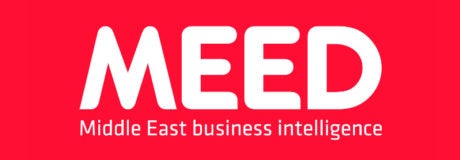
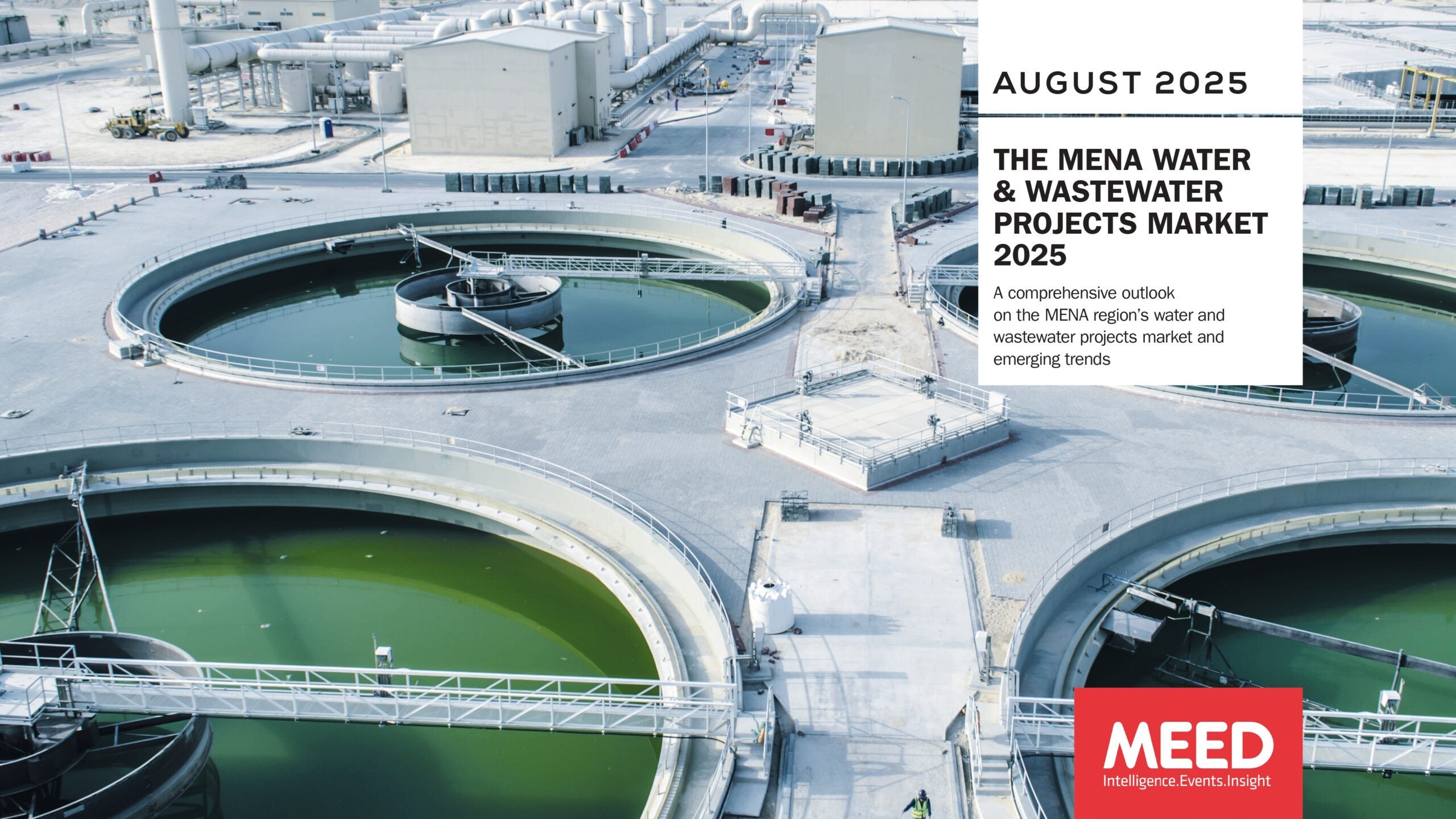
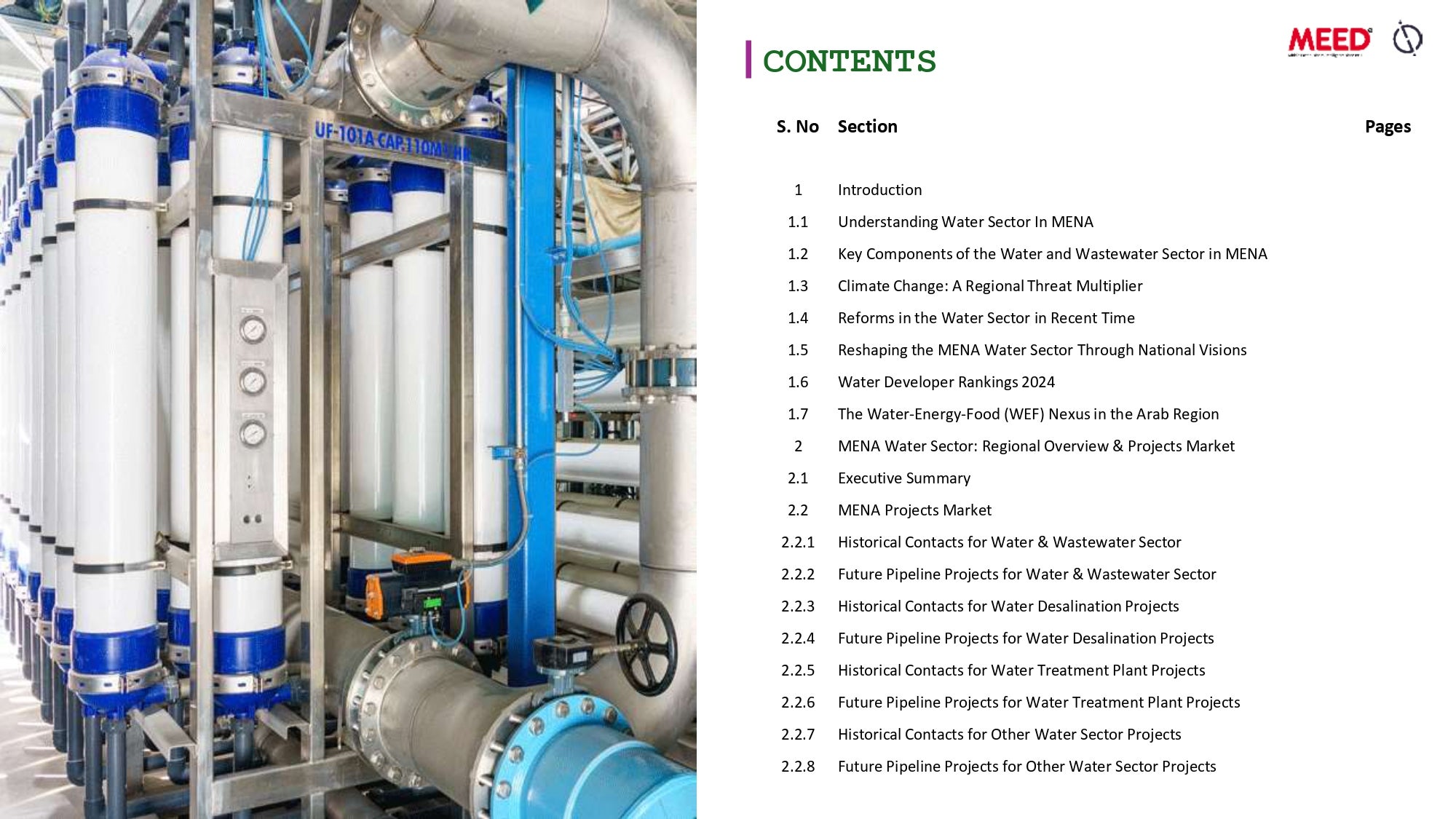
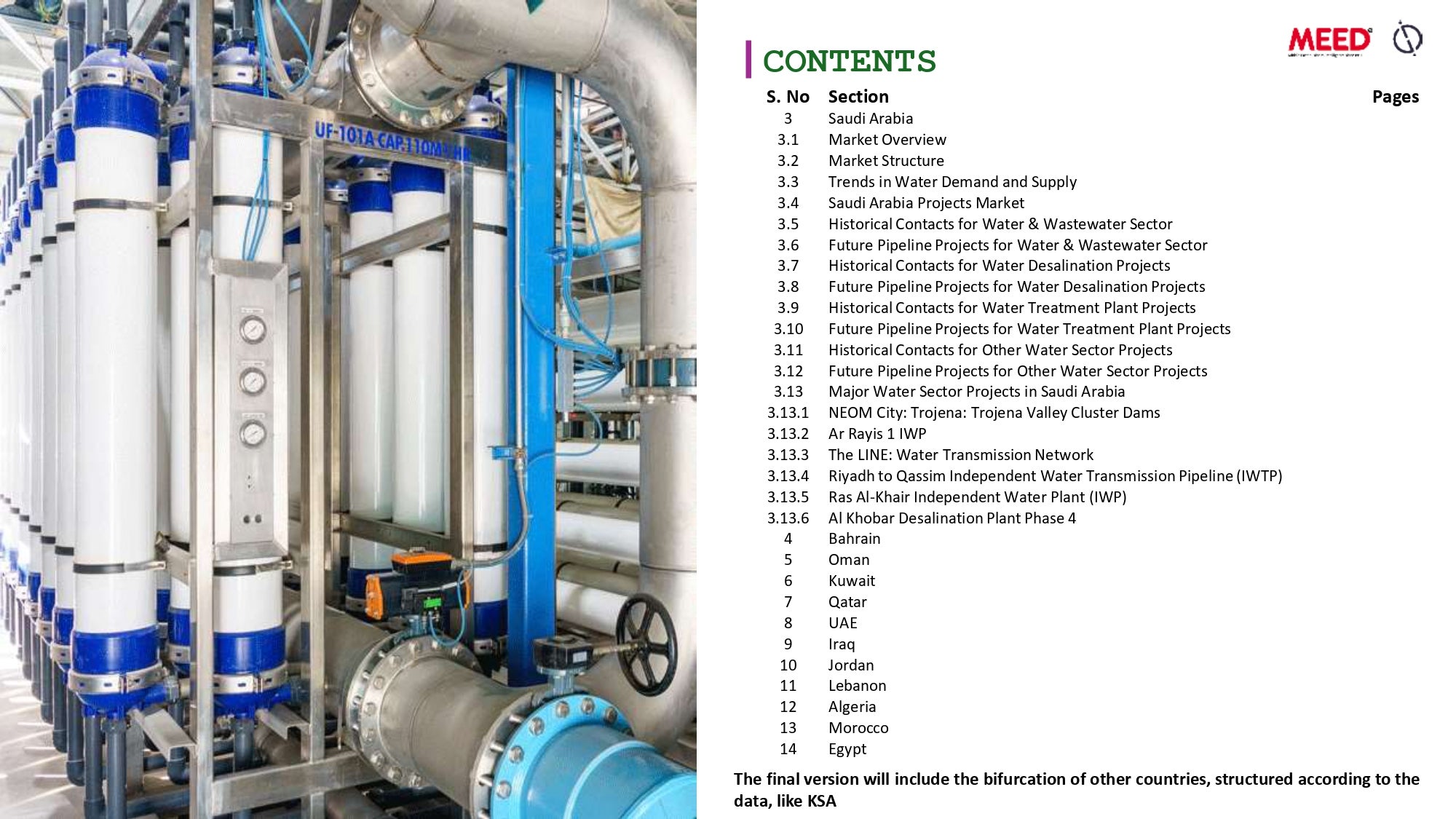
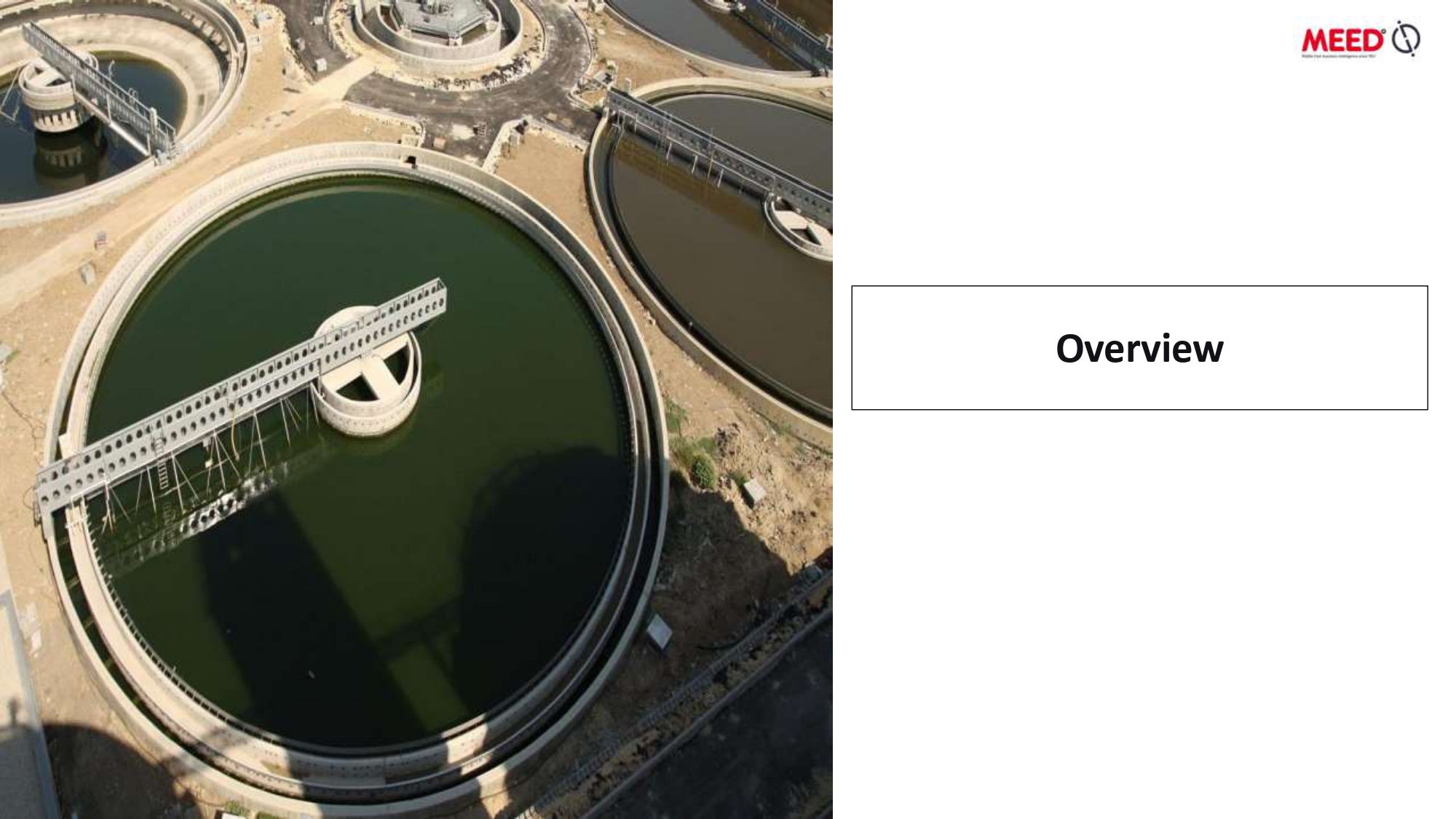
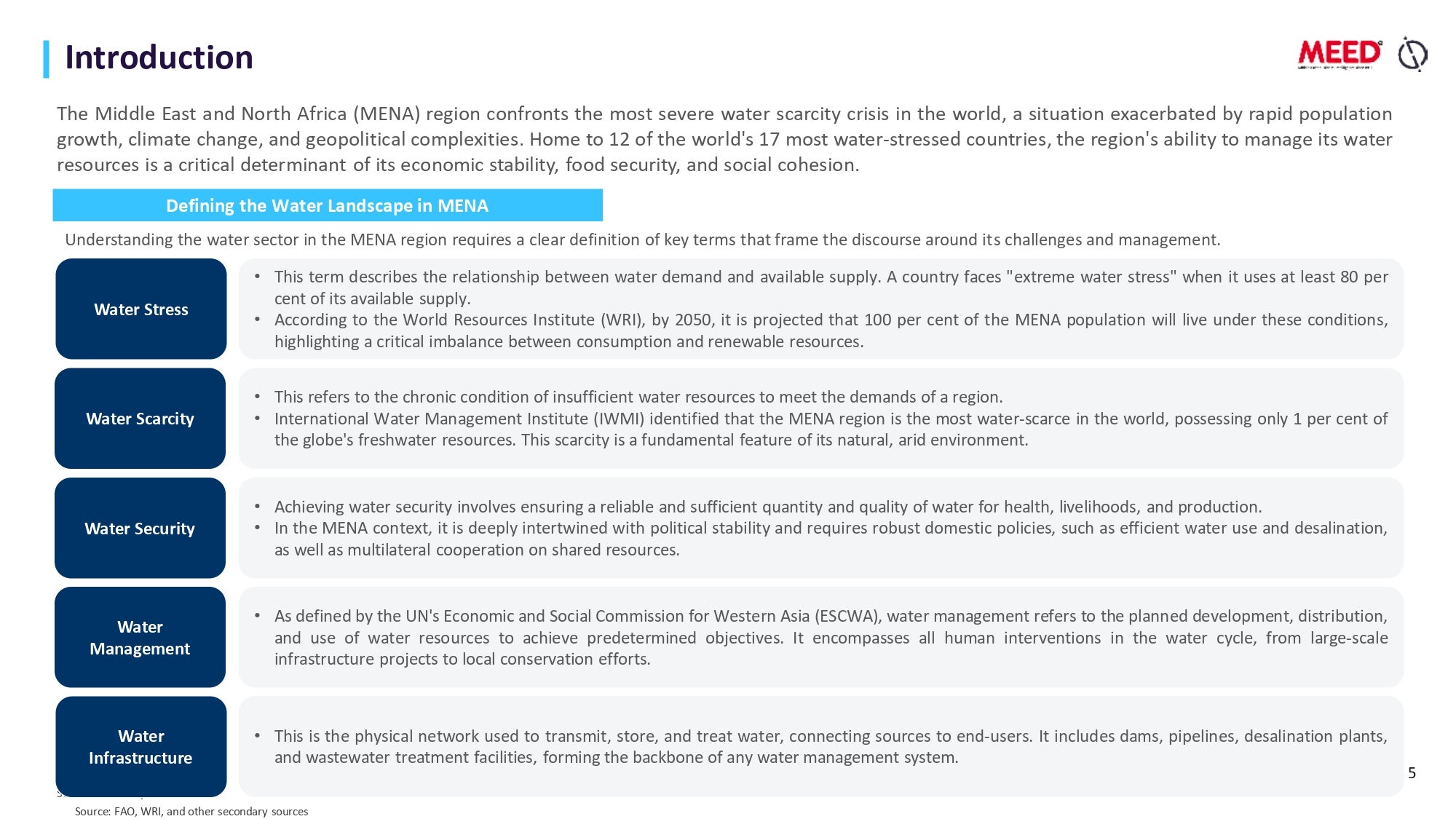
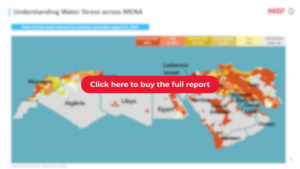
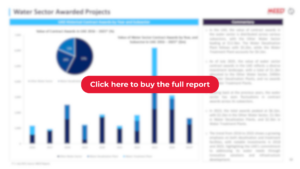
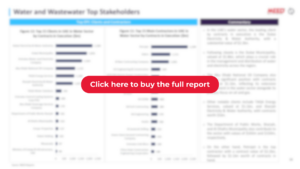
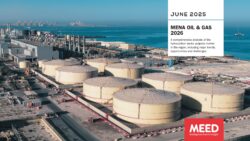
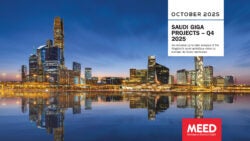

Reviews
There are no reviews yet.